Motorhome Wild Camping in Scotland- Essential things you need to know
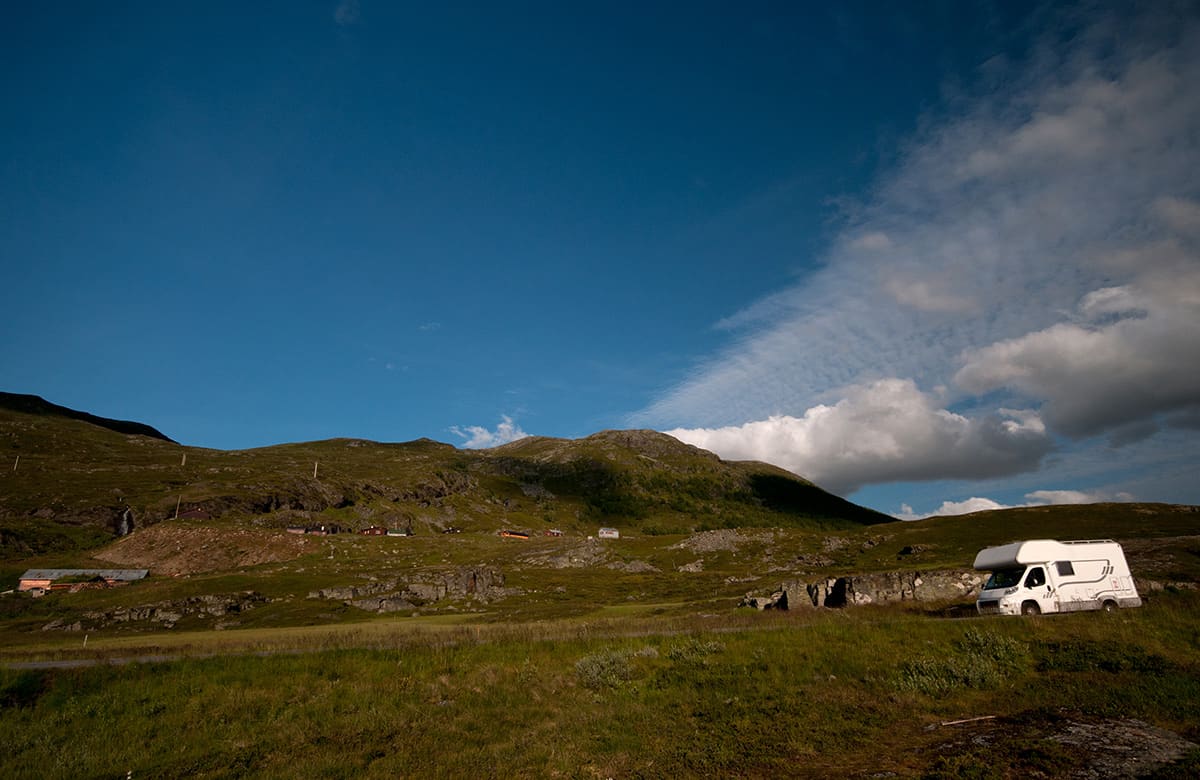
Thinking of going wild camping in Scotland with your motorhome or campervan? Worried about the rules, where to stay and if it’s legal? Here’s everything you need to know about motorhome wild camping Scotland.
Don’t forget to grab your free wild camping checklist below to help
*We work hard to make this the best motorhome travel blog and road trip website possible, full of helpful content for you. The website is supported by our readers, so if you buy through links on this site we may earn a commission- at no extra cost to you. All opinions remain our own.
If you find this post useful, you can also treat us to a coffee – we promise to enjoy it while creating more useful content like this- we might even indulge in a biscuit (or two!)
JUMP AHEAD TO...
Motorhome Wild Camping in Scotland
Scotland has long been renowned for wild camping. Whether you’re travelling in a motorhome, campervan or doing ‘proper’ wild camping with a tent, there are so many incredible places to explore.
If you scroll on Facebook or Instagram, you’ll find photos of motorhomes wild camping by Scottish beaches, alongside lochs or in the Highlands. It all looks utterly idyllic.
But is it legal?
We’ve spoken in previous posts about how to start motorhome wild camping and what the campervan parking laws are in the UK.
But people still have questions about wild camping with a motorhome in Scotland (probably because of all the recent bad press and local anger- we’ll get to that shortly).
So let’s discuss wild camping with a motorised vehicle in Scotland and break down the rules for you, as well as sharing some practical tips for your next motorhome or campervan trip.
If you want more tips for Scotland road trips, read our complete guide to motorhoming in Scotland.
Motorhome Wild Camping in Scotland- the law
When it comes to the law about wild camping with a motorised vehicle, there are 3 different Scottish laws we need to pay attention to. (I’m abbreviating parts for the sake of clarity and conciseness, but feel free to look them up if you wish)
Scottish Outdoor Access Code
The Scottish Outdoor Access code says that wild camping is lightweight, done in small numbers and only for two or three nights in any one place but it non-motorised recreation and does not extend to activities that are based on the use of a vehicle such as sleeping in cars, campers, vans or caravans.
There is no legal right to park beside the road overnight but there may be no objection in some instances so extra care is needed.
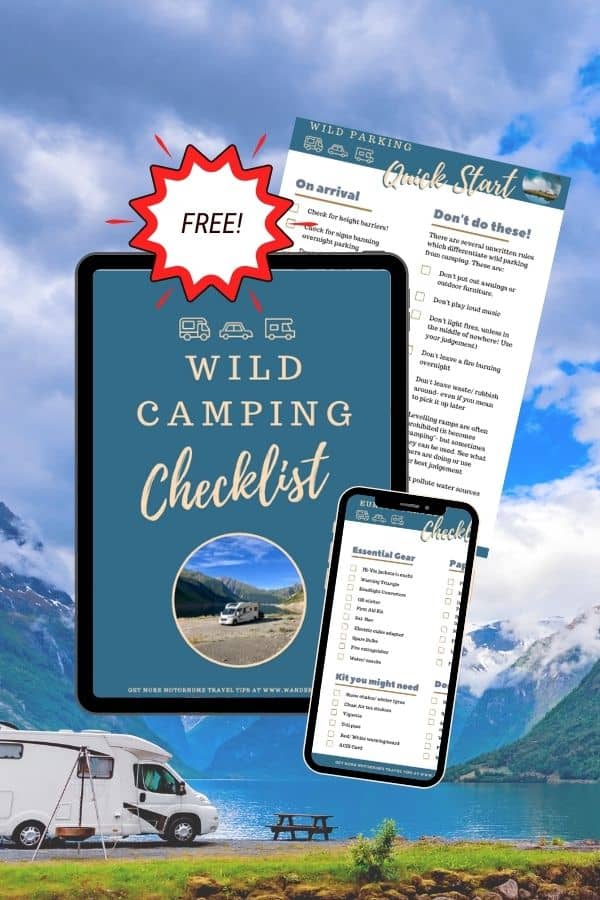
Want to stay off-grid with your motorhome?
Grab our FREE wild parking checklist and make it easy for yourself. Everything you need to do, bring or remember when you stay off-grid.
Land Reform Act of 2003
The Land Reform Act of 2003 is a Scottish Parliament Act that secures public access rights for unenclosed land in Scotland. The part of that Act that applies to motorised vehicles says that where you park your vehicle is important.
You should not cause any damage or create an obstruction by blocking an entrance to a field or a building, making it difficult for anyone else to use a road or a track. You must be aware of the safety of others, you should not damage the verge and you must use a car park if there is one nearby.
Road Traffic Act of 1988
The Road Traffic Act of 1988 says it is an offence to drive a motor vehicle without lawful authority on land of any description which is not part of a road, a footpath or a bridleway.
It also states that you can drive a vehicle off-road away from a public road for the purposes of parking as long as you stay within 15 yards of a public road but (and here’s the but!!) you do still need the landowner’s permission to park.
Most roads, unfenced land and beaches are private property and you don’t have the right to just park up whatever you like unless you have agreements from the landowner. The parking of camper vans or cars on roads and laybys is subject to the road traffic legislation and regulations. Off-road parking of a motor vehicle on verges or adjacent land without permission is unlawful.
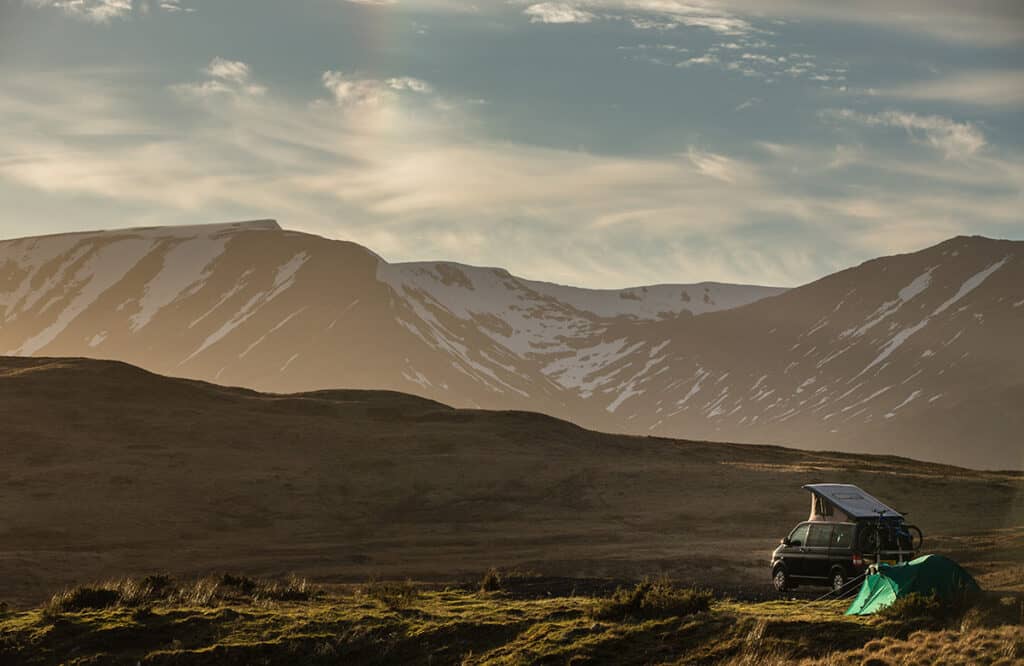
Wild camping in Scotland with a Motorhome or Campervan- is it legal?
So, what does all the above mean?
I’ll be honest- motorhome wild camping in Scotland is not as easy as it used to be. And if you’re used to wild camping in France with a motorhome, you’ll probably find it much harder.
Scotland is the only country in the UK where wild camping is legal… but that doesn’t apply to motorised vehicles (ie, motorhomes and camper vans.) THIS is where a lot of the confusion comes in.
The fact of the matter is that most land in the UK is owned by somebody. It’s nearly all private land and we do not just have the right in a motorised vehicle to turn up and park.
So no- it’s not a legal right that you have. If you want to stay 100% within the letter of the law and avoid any chance of being asked to move on, you should use a campsite or find an approved overnight motorhome parking place near you while touring Scotland.
However, it is (or has been in the past) tolerated in many places if you’re considerate and use common sense.
Can you sleep anywhere in a campervan in Scotland?
In reality, wild camping is generally tolerated as an overnight stop only– exactly like truck drivers are tolerated to stop in a lay-by so that they can get some rest. That’s why we need to plan our Scotland road trip itineraries carefully.
It is intended to be a sleeping place, not somewhere where you get out an awning and a load of chairs and make camp for a few days- and that is where I think some of the issues have arisen.
Also, you should never, ever, EVER leave waste or rubbish behind. Ever. The point of wild camping is to enjoy the unspoilt beauty of the places we visit, away from noisy campsites and neighbours. Why on earth some people then choose to ruin these places is beyond my comprehension and it needs to stop.

Want to stay off-grid with your motorhome?
Grab our FREE wild parking checklist and make it easy for yourself. Everything you need to do, bring or remember when you stay off-grid.
Recent Negative Press about free motorhome overnight parking in Scotland
Traditionally, Scotland was a lot more tolerant of wild camping in motorhomes and campers. Now that they’ve created these incredible scenic drives all over Scotland, like the NC500 and the SW300, those areas are feeling the pressure of a LOT of extra vehicles.
2020 did not help matters- with the travel restrictions in Europe, many people chose to travel to Scotland in their vehicles instead of going abroad, so the summer period in many places in Scotland was crazily over-crowded. The NC500 motorhome route was insane.
The infrastructure is just not there at the moment to deal with the sheer numbers of people who visited. Not just in terms of campsite space, but facilities for safe and hygienic waste disposal, toilet facilities, bins, fresh water supplies- it’s all a bit chaotic.
The Scottish councils are working hard to try and get things more organised and improve services, but I believe many of the locals have become a lot less tolerant of people abusing their home.
Some of the stories we’ve heard of the litter and waste left behind are disgusting and it’s heartbreaking that all motorhomers and campervan owners are being tarred with the same brush. Our hope is that things calm down and find a more natural rhythm very soon.
(Having said that, when we were wild camping in Wales, it was a group of local idiots in a car who came into the parking area and dumped all their rubbish, so it isn’t always van owners who are to blame.)
RELATED: 5 essential items you NEED for wild camping (and 2 you don’t!)
Watch the video about the motorhome free camping in Scotland
This video shares what we know about wild camping in Scotland with a vehicle (specifically motorhomes and camper vans) We share tips, tricks and also the rules as we understand them in 2020.
We hope you found the video useful. If you did, we’d love it if you followed us on Youtube. New videos with tips for motorhoming and campervanning in the UK and Europe are released weekly.
Alternative options for free overnight motorhome parking in Scotland
If all this has made you concerned about motorhome wild camping in Scotland, there are other options.
The first one is Campsites. There are hundreds around Scotland and there are some beautiful ones, right on the beach. If you’re a member of a motorhome club, you can use CL and CS sites, which are smaller campsites (max 5 pitches) and well worth a look.
Here are some of the best NC500 campsites for motorhomes and campervans
There is also Brit Stops, which is a wonderful scheme putting in contact motorhomers and campervanners with business like pubs, restaurants, cafes and attractions, who are happy to let you stay overnight in exchange for you buying a meal or some other product.
It’s a great way to explore the country and chat with some locals- who often have the best secret places!
Lastly, the Scottish Forestry Commission has been putting together places for motorhomes and campervans to stay overnight in their car parks.
This is a fairly new scheme and so far has been a great success. I used one of them in my North Coast 500 route and it was a brilliant stopover, so I hope they continue to be allowed.
Motorhome wild camping guides for the UK & Europe
For information on how to find good wild camping places, WHAT to do when you’re there and how to stay safe, check out our step-by-step guide for motorhome wild camping in the UK and Europe, complete with database of 250+ overnight spots we’ve stayed with our motorhome.
Don’t forget to grab your free wild camping checklist here
Motorhome Wild Camping on the NC500
The NC500 is one of the most scenic drives in Scotland and is well worth a visit by motorhome or campervan.
Along the route, there are some incredible campsites and also plenty of wild parking places. Be very careful not to block a road or park in a passing place- those are NOT laybys for overnight stops.
You might struggle during summer due to the sheer number of people who visit, but you also might struggle during on a UK winter road trip as many of the campsites close and it can be tough to find fresh water or waste facilities.
So make sure you hit the NC500 prepared and ready for at least a few days without amenities.
Wild Camping for motorhomes on Isle of Skye
The Isle of Skye on the west coast of Scotland is another place which has struggled with wild campers, especially during the summer.
There are places available for wild camping, but you need to get there early to grab a spot and expect to be blocked in on some occasions.
Personally, we prefer our Isle of Skye motorhome trips out of peak season- it’s quieter and (if you’re lucky!) the midges will be less prevalent than they are in mid-summer!
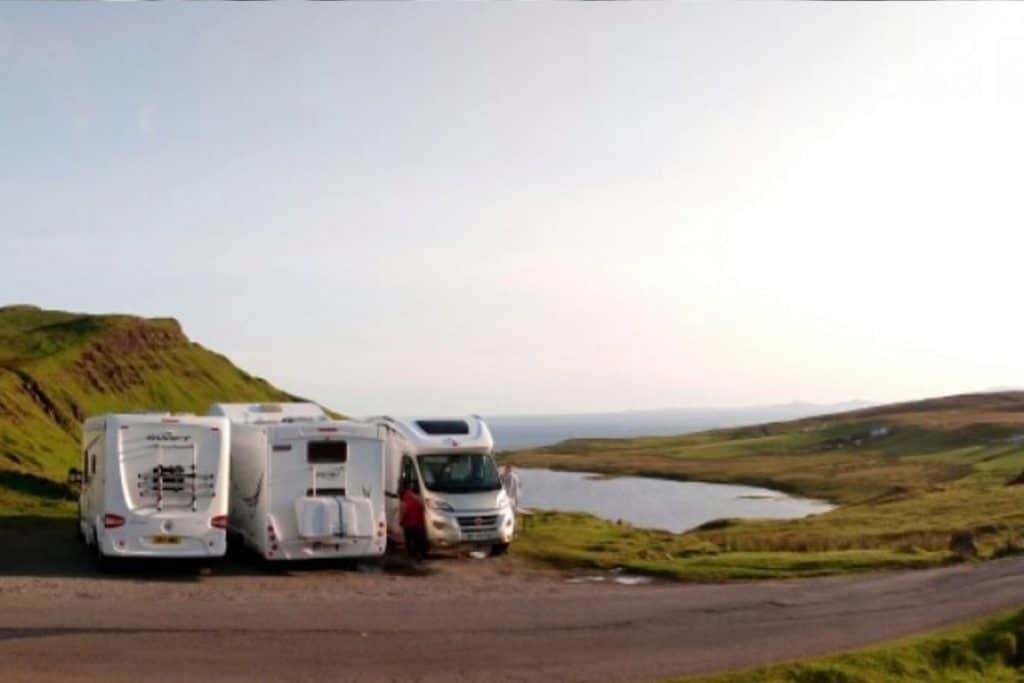
Motorhome Overnight parking near Fort William
Fort William is a hugely popular area, with the Caledonian Canal and Loch Ness nearby.
As a larger town, you’ll struggle wild parking in the town itself (unless you have a stealth camper) but there are a few places on the outskirts which will work for an overnight stop. Use our tips on how to find places for overnight parking.
Informal Overnight Parking for motorhomes and campers near Loch Lomond
Many of the National Parks in Scotland have permit zones, which allows overnight parking with a motorhome or campervan for a small fee (currently £3/ night).
In order to be able to stay overnight in the confines of the park, you need to buy a permit in advance (you can do that here.)
You can stay for up to 3 nights in one area, and need a permit for every van or tent you use (yes, that includes pup tents).
NOTE: There are only a limited number of permits allowed for wild camping.
NOTE: If you’re travelling with a dog, there are a LOT of ticks in the area- please treat your pup before you visit.
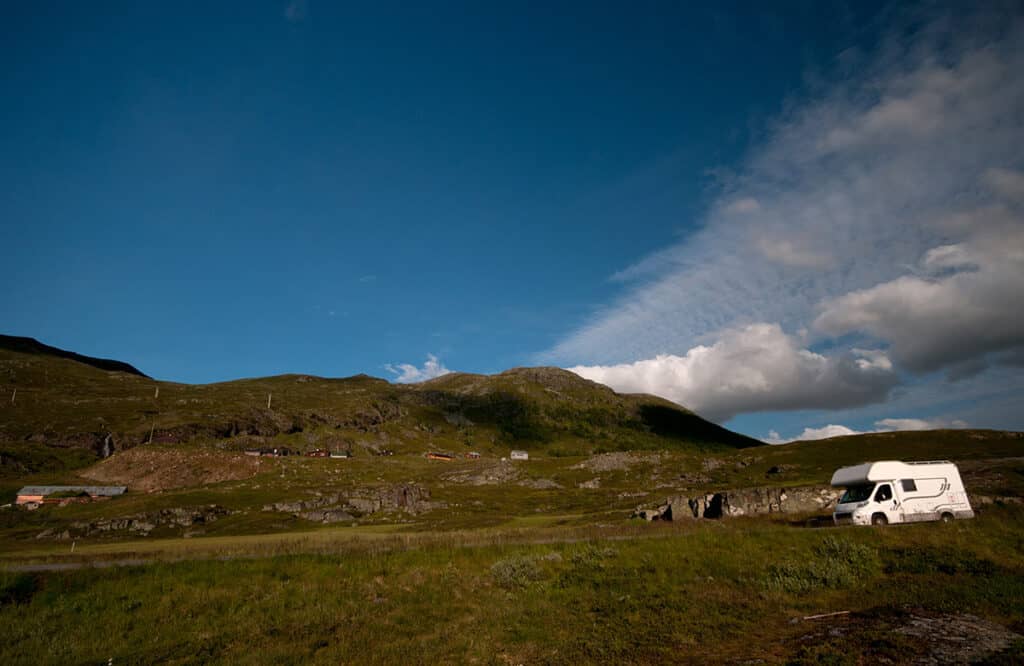
Top Tips for motorhome wild camping in Scotland
- stay away from tourist areas or busy seafronts- try to be as remote and unobtrusive as possible
- be respectful of others- don’t park right next to another van and don’t play loud music/ make loud noise
- be respectful of the locals and don’t damage their home/ the local environment
- avoid other groups of motorhomes or campervans
- don’t put outdoor furniture or awnings out, dry washing outside or start washing down your vehicle- see our essential motorhome wild camping kit here
- make sure to empty your toilet and waste tanks only in appropriate, hygienic places
- fill up your fresh water tank whenever you can
- listen to your gut. If something doesn’t feel right, you might want to move on. Read these tips on motorhome security for more ideas
Things Not To Do Campervan Wild Camping in Scotland
- don’t park blocking someone’s view or in front of a house
- avoid places with signs stating ‘no overnight parking’
- don’t block the road or access to tracks and fields. Use your common sense- if it isn’t the right place for a vehicle, don’t stay there
- don’t stay for more than one night
- never leave a mess behind. That includes make litter, waste or broken equipment
- don’t light an open fire where it can cause damage- especially in the summer or times of drought. Keep it off the ground to avoid scorch marks
I hope that’s helped answer some of your questions about motorhome and campervan wild camping in Scotland.
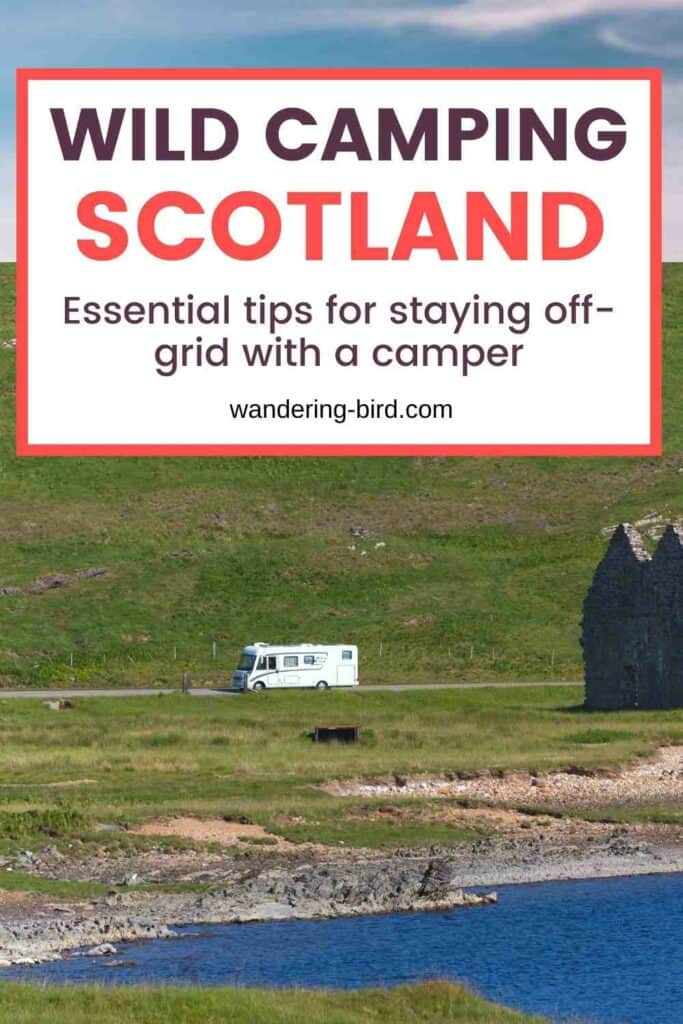

Kat never planned to buy a motorhome. She also never planned to quit her job as an air traffic controller, go touring around Europe in said motorhome, start one of the UK’s largest motorhome travel websites… or get a cocker spaniel.
Find out how she went from stuck in the rat race to being a digital nomad and inspiring thousands of people to have their own epic adventures here.
If you’d like to connect with Kat, send her an email or follow her adventures on social media.


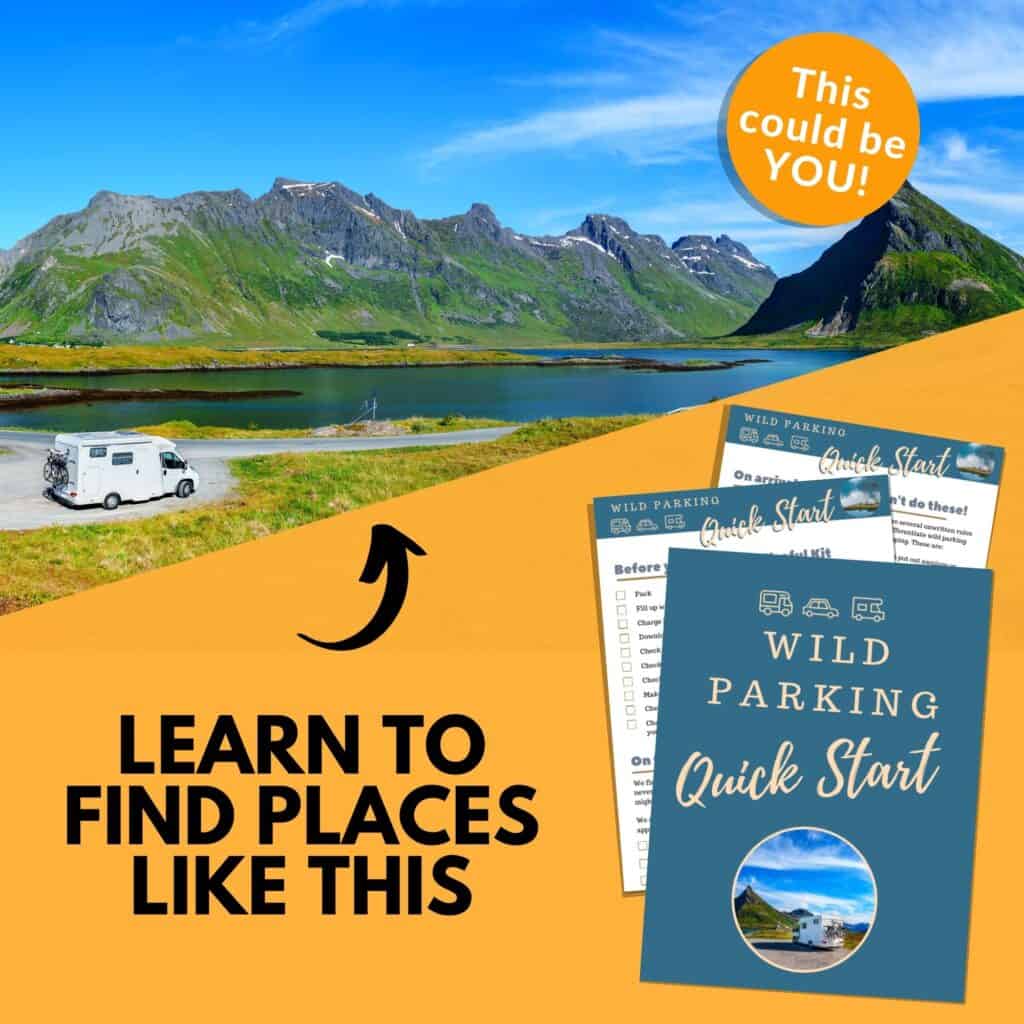

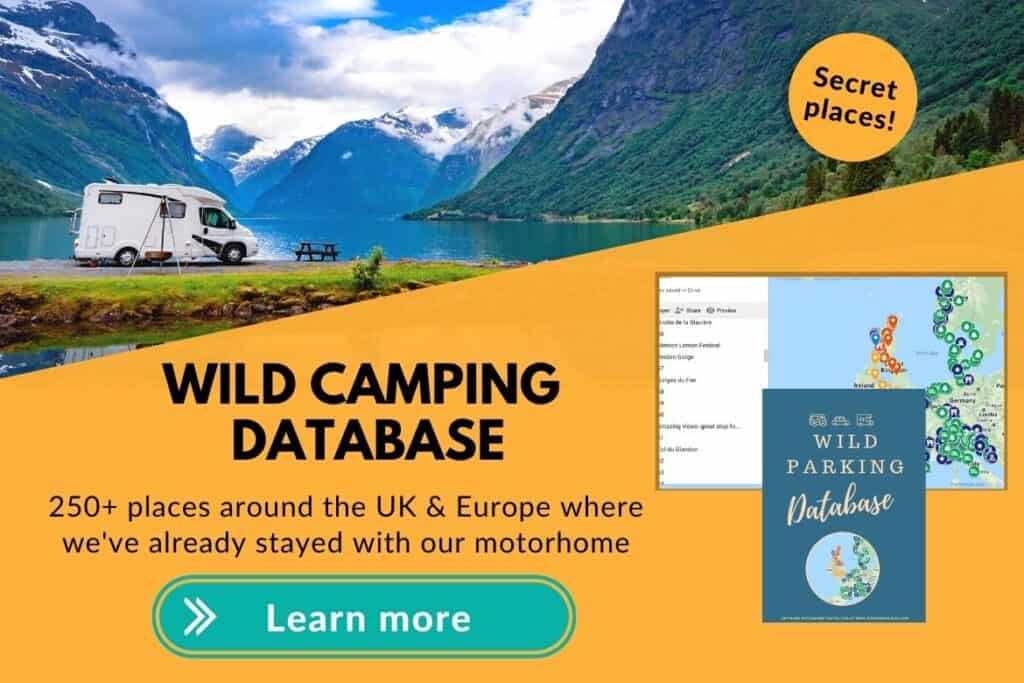
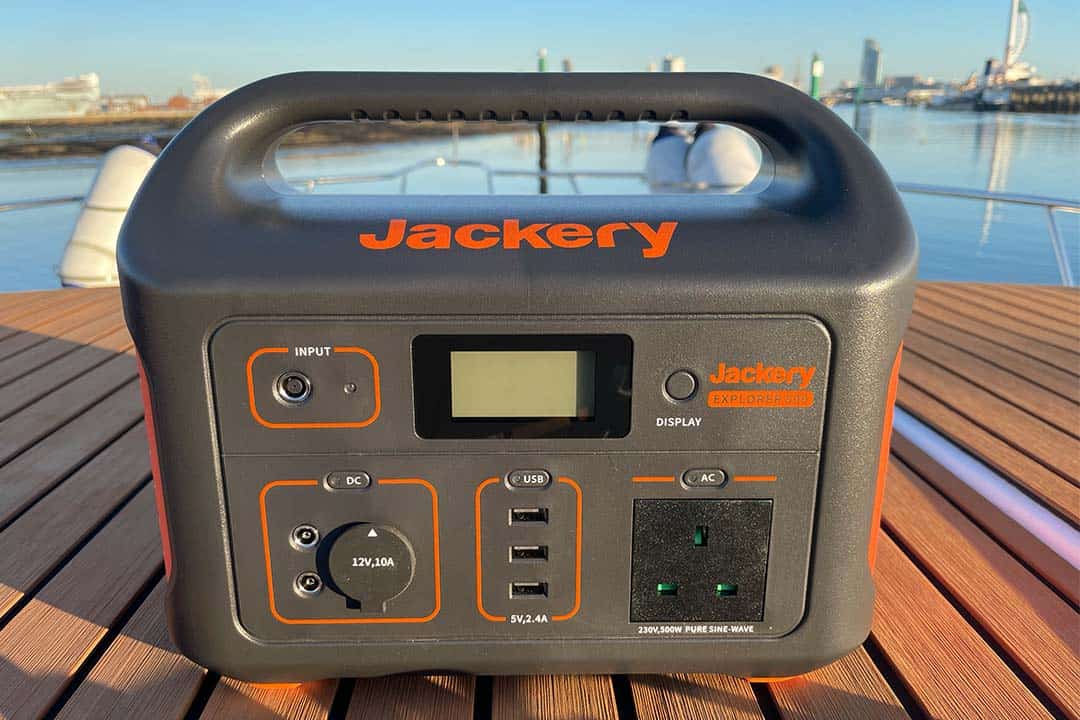
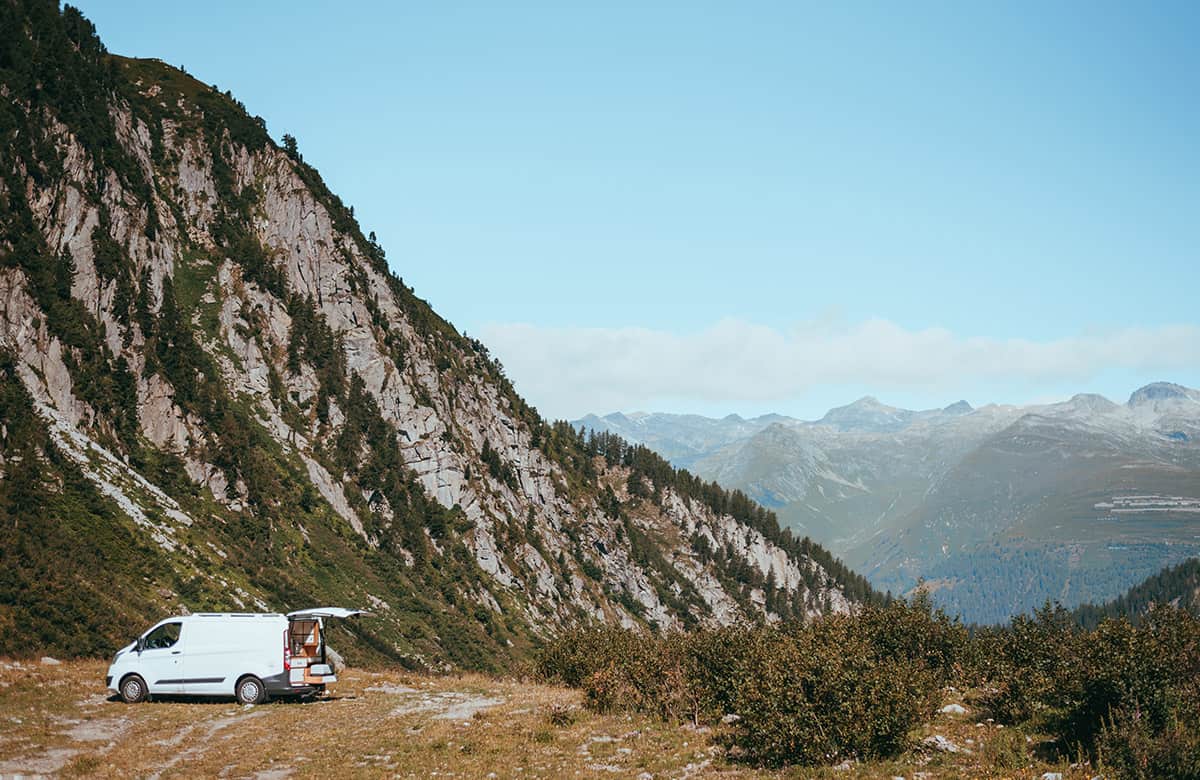
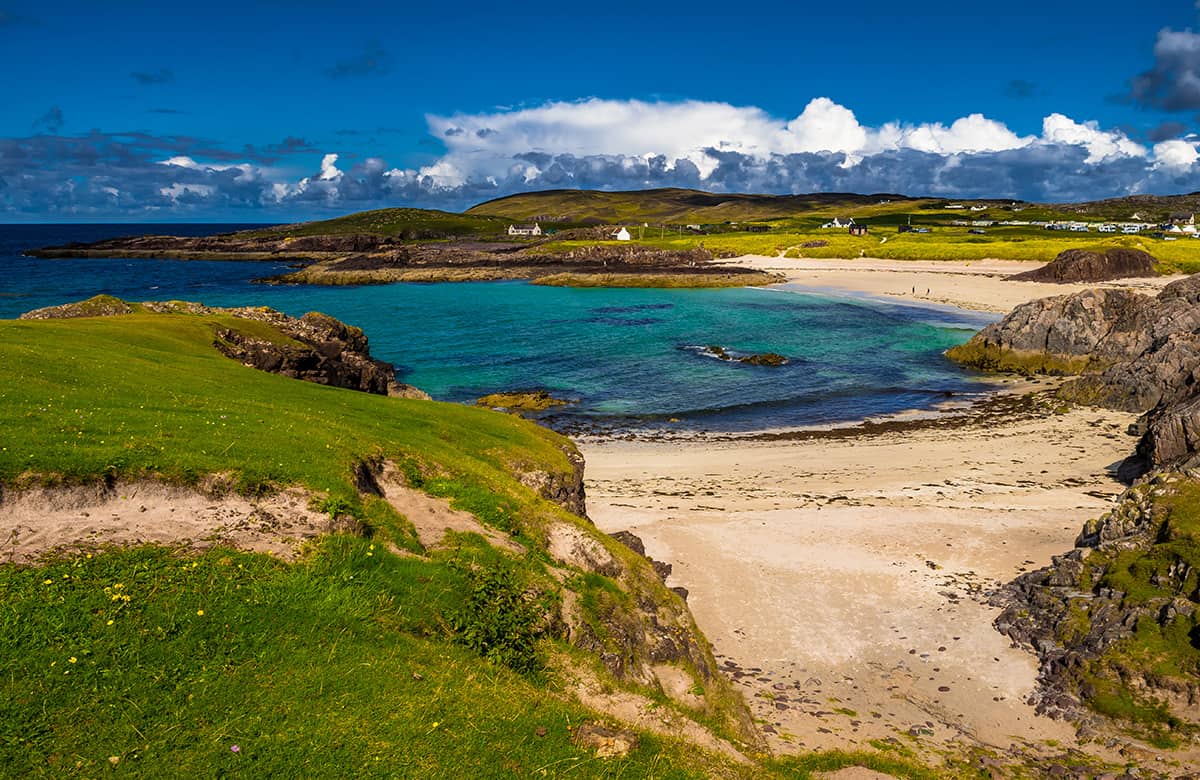
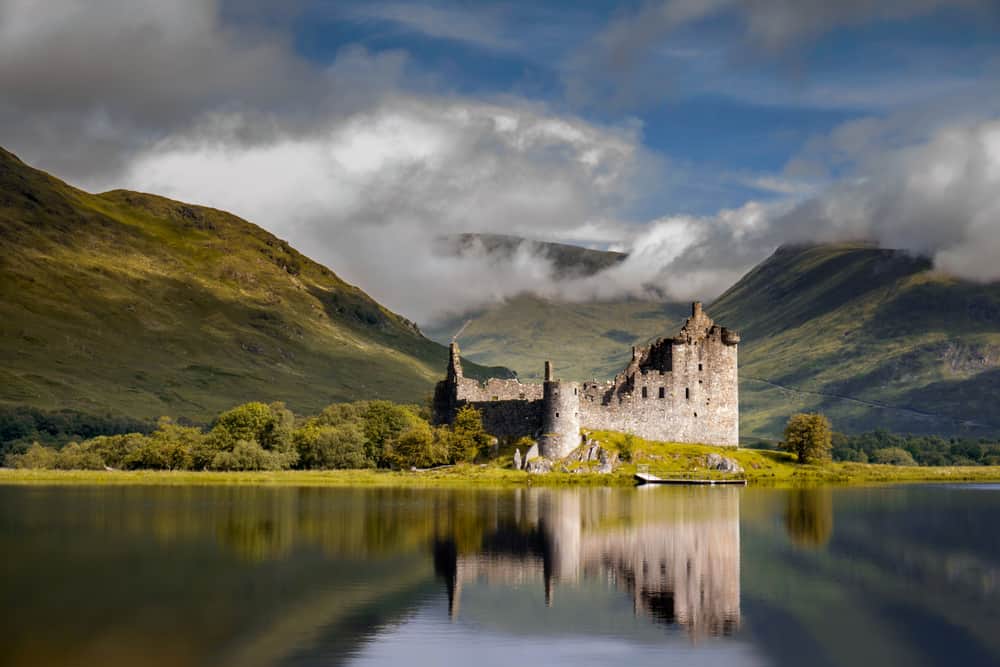
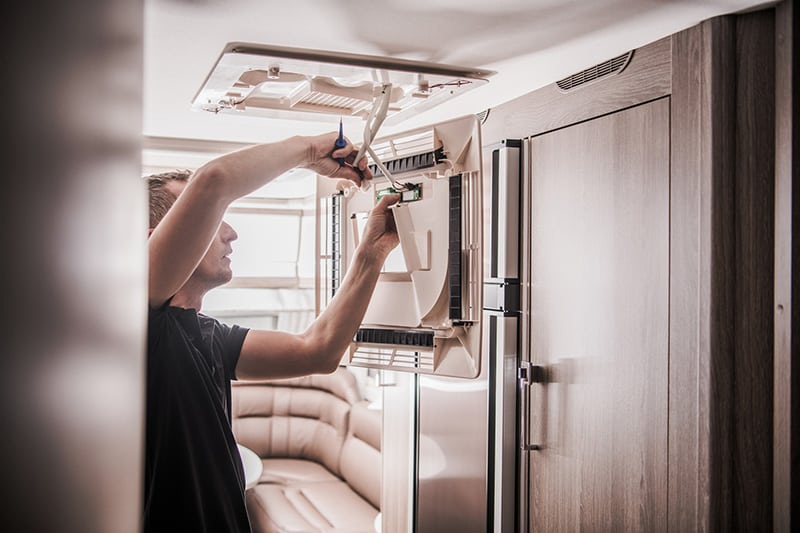

Great informative article. We live on the NC500 and have also recently got our first campervan to explore our beautiful country more, so can see things from both sides. We currently will only stay in campsites due to the bad publicity but do hope in the future to be able to “wild camp” responsibly. Scotland is a beautiful country with friendly folk (usually) so come and visit us but respect our local environment please.
Hi Jan. Can’t say I blame you- it’s tough in Scotland at the moment. But lucky you living in such a beautiful area!